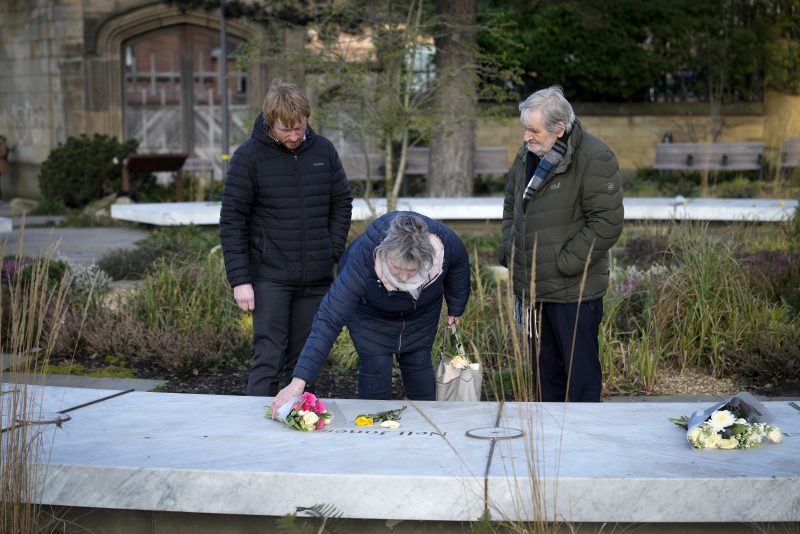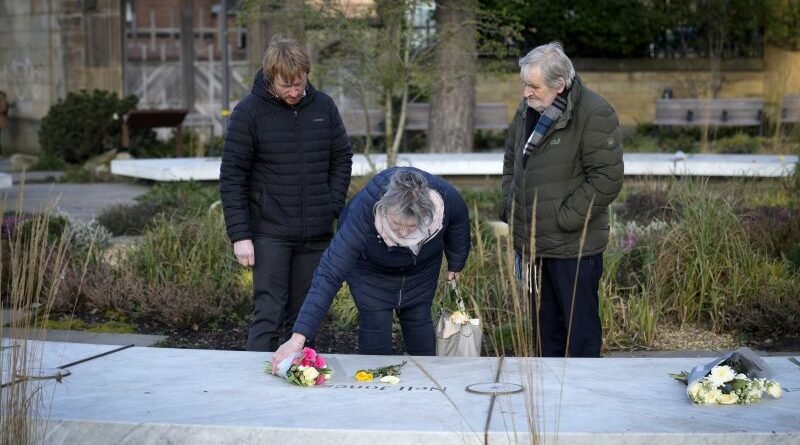Survivors to Sue Intelligence Agency Over 2017 Ariana Grande UK Concert Bombing – One America News Network

OAN’s Elizabeth Volberding 1:45 PM – Monday, April 15, 2024
Over 250 survivors of the 2017 Ariana Grande concert in Manchester, England, suicide bombing, which left 22 people dead, are now taking legal action against Britain’s domestic intelligence service, according to attorneys who spoke to the press.
Advertisement
On Sunday, attorneys from three different law firms said that they had filed a collective claim with the United Kingdom’s investigatory powers tribunal (IPT) on behalf of over 250 clients. They claimed that because it was a pending legal situation, they were unable to disclose any more information.
As mandated by the Regulation of Investigatory Powers Act (RIPA) 2000, the IPT is an independent public agency that looks into complaints regarding the alleged behavior of public bodies toward members of the public.
As thousands of young fans were leaving singer Ariana Grande’s May 22nd, 2017, concert at Manchester Arena in northwest England, suicide bomber Salman Abedi detonated a homemade bomb packed with metal nuts and bolts.
As a result, 22 individuals lost their lives and over 100 people were injured, the majority of the victims were minors. Abedi also died during the explosion.
According to a formal investigation conducted last year, Britain’s domestic intelligence service, MI5, failed to act quickly enough on critical evidence and missed a major chance to prevent the bombing.
Although Abedi was considered “low-risk,” his file was closed shortly after MI5 authorities labeled him a “subject of interest” in 2014.
Over 250 individuals have joined the MI5 group action and filed a claim with the investigatory powers tribunal, which is responsible for hearing complaints regarding the intelligence agencies. This lawsuit is reportedly the first that MI5 has faced because of its inability to prevent a domestic terrorist strike.
The three principal companies representing the M15, Slater and Gordon, Broudie Jackson Canter, and Hudgell Solicitors, issued a statement:
“Legal teams representing injured survivors of the Manchester Arena bombing in 2017 can confirm that they have collectively submitted a group claim on behalf of more than 250 clients to the investigatory powers tribunal (IPT). As it is an ongoing legal matter, we are unable to provide any further details, or comment further, at this stage.”
Director general of the security service, Ken McCallum, had apologized previously in public for not intervening to stop 22-year-old Abedi, whom MI5 had received information about prior to the tragedy. An investigation into the incident, which took the lives of 22 people and injured hundreds more, found that MI5 had a “significant opportunity” to stop the bombing.
Sir John Saunders, the chair of the inquiry, stated that although there was a “realistic possibility” that investigators could have prevented the bombing if they had acted more decisively on two crucial pieces of intelligence, it was “quite impossible” to conclude with certainty that a different course of action would have prevented the explosion.
Andrew Roussos, the father of the youngest person killed in the bombing, 8-year-old Saffie Roussos, previously stated that suing MI5 was the “only way to learn.”
“Everybody learns by hitting them hard in the pocket, I am sorry to say,” Roussos explained to Times Radio. “In 2017, we were at the highest alert and everybody was warned of an attack in this country, and MI5 – who, their sole job, they are well funded and well equipped – had 22 pieces of information about Salman Abedi. So, if they would have learned lessons, they wouldn’t have allowed Abedi to walk into that arena. So, yes, MI5 have, for me, most of the blame.”
The investigation into the incident, which was completed last year, determined that if important pieces of intelligence had been treated with greater seriousness in the months prior to the explosion, MI5 would have taken Abedi’s return from Libya four days earlier “extremely seriously.” It also discovered that if an inquiry had begun earlier, the agency could have identified Abedi’s homemade device, which was kept in a Manchester car.
“Salman Abedi should not have made it to that arena that night,” Roussos said. “There were too many missed opportunities.”
Stay informed! Receive breaking news blasts directly to your inbox for free. Subscribe here. https://www.oann.com/alerts

